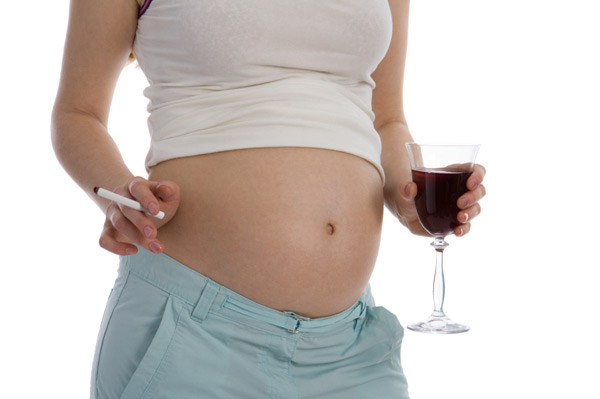
“It is OK to drink a little bit of alcohol during pregnancy” or “a pregnant woman should not touch alcohol at all during her pregnancy.” These statements represent the contradictory conclusions that large population studies on pregnancy and alcohol can reach. Psychologist Janni Niclasen has just defended her PhD thesis on the subject at the University of Copenhagen.
She was surprised by the different results that were reached, and she decided to get to the bottom of the results by following up on the large population study done by the Danish Health and medicine authorities called “Danish National Birth Cohort” (“Bedre Sundhed for Mor og Barn”) which gathered information about alcohol and pregnancy. And her results are surprising.
“My study shows, among other things, that the children of mothers who drank small quantities of alcohol — 90 units or more — during their pregnancies show significantly better emotional and behavioral outcomes at age seven compared to children of mothers who did not drink at all. At first sight this makes no sense, since alcohol during pregnancy is not seen as beneficial to child behavior. But when you look at the lifestyle of the mothers, you find an explanation. Mothers who drank 90 units or more of alcohol turn out to be the most well educated and healthiest lifestyle over all,” says Janni Niclasen. She explains the result further:
“Further, it is a question of taking account of childhood related psychological factors like attachment between mother and child in this type of study. This is a problem because we know that i.e. attachment is a very significant predictor for child cognitive and mental health. Therefore it should be taken into account in our statistical analysis,” she says.
Janni Niclasen only examined the alcohol consumption of women who drank small quantities of alcohol during pregnancy. Therefore her study does not show the effect on children whose mothers drank large quantities of alcohol during pregnancy.
The problem of missing variables Janni Niclasen’s study looks at the results of a large population study conducted between 1996 and 2002. In this study over 100,000 pregnant Danish women were interviewed at three separate occasions about their consumption of alcohol twice in pregnancy and again at age six month of their child. They were also asked among other things about their educational background and lifestyle.
37,000 women who had answered all three rounds of questions were contacted again when their children were now seven years old. At this point in time the aim was to measure the scores of the children on the so-called Strengths and Difficulties Questionnaire (SDQ), which is a tool for screening children and adolescents’s behavior, emotions and peer relationships. It is these replies from the study that Janni Niclasen used in her research.
“My conclusion was that seven year olds born to mothers who drank small quantities of alcohol during their pregnancies did significantly better emotionally and behaviorally at age seven that the children of mothers who did not drink anything during pregnancy. However it is important to emphasize that this is not an invitation to pregnant women to drink alcohol,” she says.
Among other things it is the failure to include psychologically, socio-demographic and lifestyle factors that makes her question the findings of the large statistical studies about pregnancy and alcohol.
“It is already difficult to control for all the lifestyle factors as it is, and when, on top of that, information is lacking about psychological variables like for instance attachment and intelligence, you need to be careful when interpreting the results,” she says.
Janni Niclasen’s PhD thesis consists, in part, of five scientific papers out of which three are about alcohol and pregnancy.
The study done by University of Copenhagen.